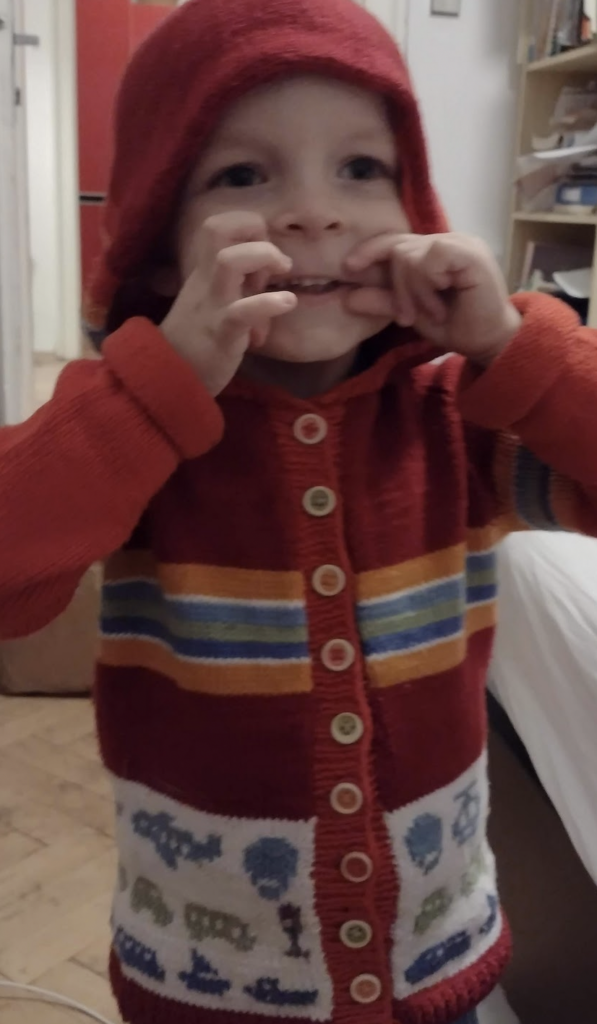Today’s author is Naomi Sveholm a missionary with Central Europe Teachers teaching English at a bilingual Lutheran high school in Bratislava, Slovakia with her spouse and two children.
Exodus 35:30-35 | Psalm 33:1-5
When I was in college I took an art history class called “women in the arts”. While we certainly discussed the few women who succeeded in the wealthy male-dominated fine arts scene of Europe’s Renaissance and beyond, what I found most fascinating was how much of the women’s contributions to the arts were simply part of the everyday experiences of life, necessary for survival (spinning, knitting, weaving, and mending clothing and blankets) or sometimes adornments for celebrations (lace, embroidery), and often in the fiber arts. While some projects, such as weaving, are just as stationary as oil painting, many are more portable and easier to make fit into short stretches of time between responsibilities. We even see some art that includes knitters using belts to hold their yarn so they could knit while walking to market, or using drop-spindles on their way to fetch water, necessary and made to fit into daily life.
It was following that art history class that I learned to knit and my mom learned to quilt. I have since created a number of both useful and (hopefully) beautiful items, mostly hats and toys. I love seeing my creations in use, knowing that they can elevate the ordinary to something pleasing and joyful.





This week’s texts speak of various forms of art: working in metal, stone, and wood; fiber arts, specifically embroidering and weaving; and music, both singing and playing instruments. In the texts, each form works with others to honor God.
While we now worship largely in churches instead of tabernacles, it still gives me joy to see the fixed decorative elements of stone, wood, and glass in my church in Slovakia, and the colorful undulating walls at Prince of Peace, as well as the banners and stoles that seasonally decorate both worship spaces. They change the environment. So does music. They lift an ordinary communal space to a sacred one.
Besides the naming of various arts, the first text also encourages those who have been filled with the spirit of the arts to both create and to teach others to create. Design, creativity, and skilled artisanship are to be shared and passed on. They are not the responsibility solely of the leaders, but of the team they bring together and instruct. The second text asks us to rejoice (or sing joyfully in other translations) and sing a new song with loud shouts. Our joy need not be contained, but shared and celebrated. We do not create or express joy in a vacuum, but in community.
May you find joy in ordinary and extraordinary creation!
Dear creator,
You fill us with your joyful, creative spirit and inspire us to develop our own creations. Help us know how and when to share our talents, creations, and joy with others.
In Jesus’ name we pray,
Amen
